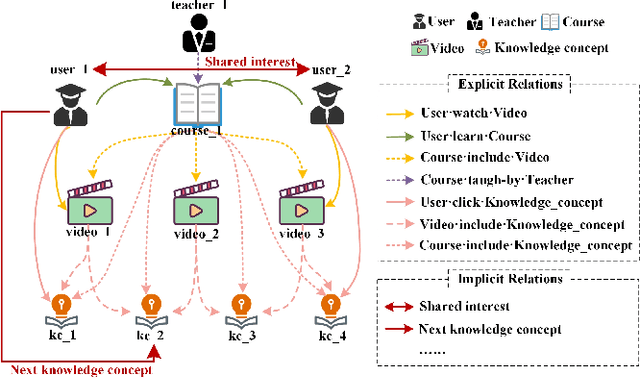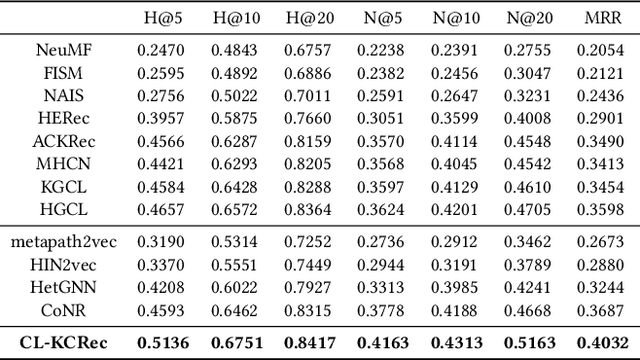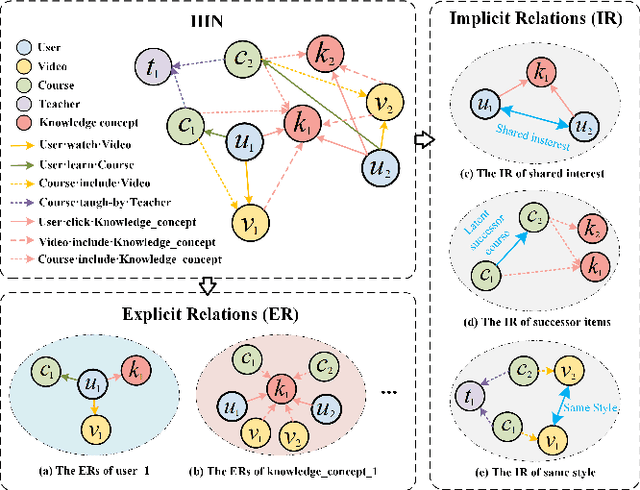Modeling Balanced Explicit and Implicit Relations with Contrastive Learning for Knowledge Concept Recommendation in MOOCs
Paper and Code
Feb 13, 2024



The knowledge concept recommendation in Massive Open Online Courses (MOOCs) is a significant issue that has garnered widespread attention. Existing methods primarily rely on the explicit relations between users and knowledge concepts on the MOOC platforms for recommendation. However, there are numerous implicit relations (e.g., shared interests or same knowledge levels between users) generated within the users' learning activities on the MOOC platforms. Existing methods fail to consider these implicit relations, and these relations themselves are difficult to learn and represent, causing poor performance in knowledge concept recommendation and an inability to meet users' personalized needs. To address this issue, we propose a novel framework based on contrastive learning, which can represent and balance the explicit and implicit relations for knowledge concept recommendation in MOOCs (CL-KCRec). Specifically, we first construct a MOOCs heterogeneous information network (HIN) by modeling the data from the MOOC platforms. Then, we utilize a relation-updated graph convolutional network and stacked multi-channel graph neural network to represent the explicit and implicit relations in the HIN, respectively. Considering that the quantity of explicit relations is relatively fewer compared to implicit relations in MOOCs, we propose a contrastive learning with prototypical graph to enhance the representations of both relations to capture their fruitful inherent relational knowledge, which can guide the propagation of students' preferences within the HIN. Based on these enhanced representations, to ensure the balanced contribution of both towards the final recommendation, we propose a dual-head attention mechanism for balanced fusion. Experimental results demonstrate that CL-KCRec outperforms several state-of-the-art baselines on real-world datasets in terms of HR, NDCG and MRR.
 Add to Chrome
Add to Chrome Add to Firefox
Add to Firefox Add to Edge
Add to Edge